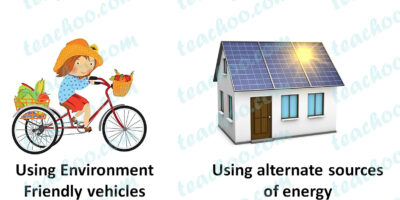How to Protect Your Family from NW Air Pollution
How to Protect Your Family from NW Air Pollution
Air pollution in the Northwest can be a serious concern for families. Understanding how to mitigate its effects is crucial. This guide will help you navigate the steps necessary for ensuring your family’s health and safety.
Understand Local Air Quality Index (AQI)
The Air Quality Index (AQI) measures the quality of the air on a daily basis. Familiarize yourself with how the AQI works and where to find updates. Tracking the AQI helps you make informed decisions about outdoor activities.
- AirNow offers current AQI numbers and forecasts.
- Local news and weather apps also provide AQI updates.
Limit Outdoor Activities
On high pollution days, stay indoors as much as possible. Restrict physical activities such as jogging, biking, or playing sports. Pollutants can be more harmful during exercise because you breathe more deeply and rapidly.
- Check the AQI before planning outdoor activities.
- Consider rescheduling or moving activities indoors when the AQI is high.
Seal Your Home Properly
Prevent outdoor air from entering your home by sealing windows and doors. Use weather stripping and caulk to close gaps. A well-sealed home keeps indoor air quality higher.
- Install high-quality weather stripping on doors and windows.
- Regularly inspect and maintain seals and caulking.
Use Air Purifiers
High-efficiency particulate air (HEPA) filters can remove small particles from the air inside your home. Consider using air purifiers in rooms where your family spends the most time.
- Choose HEPA filters with a high Clean Air Delivery Rate (CADR).
- Replace filters according to manufacturer guidelines.
Keep Windows and Doors Closed
During times of high pollution, keep your home’s windows and doors shut. This minimizes the amount of polluted air that enters your home. Use air conditioning or fans to maintain comfort without opening windows.
- Run air conditioning on recirculate mode.
- Check and replace HVAC filters regularly.
Encourage Indoor Activities
Plan indoor games and activities to keep family members entertained on poor air quality days. This helps maintain their wellbeing without exposing them to harmful pollutants.
- Set up a play area with indoor toys and games.
- Encourage hobbies like reading, puzzles, or crafts.
Promote Healthy Eating
A diet rich in antioxidants can help combat the effects of air pollution. Offer your family fruits and vegetables known for their antioxidant properties.
- Incorporate a variety of colorful fruits and vegetables.
- Include foods like berries, nuts, and leafy greens.
Stay Hydrated
Drinking plenty of water helps flush out toxins. Encourage your family to stay hydrated, especially during high pollution periods.
- Keep water bottles accessible for all family members.
- Consider water-rich foods like cucumbers and watermelon.
Educate Your Family
Teach your family about the signs and symptoms of air pollution exposure. Awareness helps in taking early steps to reduce health risks.
- Share information about the importance of monitoring air quality.
- Discuss symptoms such as coughing, shortness of breath, and eye irritation.
Work with Your Community
Community efforts can significantly reduce air pollution. Engage with local organizations and participate in initiatives aimed at improving air quality.
- Join or support local clean air campaigns.
- Participate in tree planting or other green projects.
Maintain Car Emissions
Cars can contribute significantly to air pollution. Regular maintenance of your vehicle ensures it runs efficiently and emits fewer pollutants.
- Keep your car’s engine well-tuned.
- Use the recommended oil and fuel types.
Use Public Transport
Public transportation reduces the number of vehicles on the road and the associated pollution. Encourage your family to use buses, trains, or carpools.
- Plan routes and familiarize yourself with local transit schedules.
- Consider biking or walking for short distances.
Avoid Indoor Pollutants
Common household items can produce indoor air pollutants. Reduce exposure by choosing low-emission products and ventilating your home properly.
- Opt for eco-friendly cleaning products.
- Avoid smoking indoors and limit the use of incense or candles.
Install Ventilation Systems
Modern ventilation systems can significantly improve indoor air quality. Consider systems with built-in air filtration.
- Use exhaust fans in kitchens and bathrooms to remove contaminants.
- Consider whole-home ventilation systems for continuous air exchange.
Monitor and Respond to Symptoms
Take symptoms of pollution exposure seriously. Seek medical advice if symptoms persist or worsen.
- Keep track of any respiratory issues, headaches, or fatigue.
- Consult healthcare professionals for persistent health concerns.
Stay Informed
Stay updated on local air quality and health guidelines. Subscribe to alerts and be proactive in responding to changes.
- Join community groups focused on air quality issues.
- Follow local health departments on social media for updates.
Use Indoor Plants
Some indoor plants can help improve air quality by filtering pollutants. Adding plants to your home can be an effective and natural way to clean the air.
- Choose plants such as spider plants, peace lilies, and snake plants.
- Avoid plants that may cause allergies or require extensive maintenance.
Implement No-Idling Policies
Car exhaust contributes significantly to local air pollution. Adopt and promote no-idling policies for your household and community.
- Turn off your engine if you’ll be stopped for more than 30 seconds.
- Support and advocate for no-idling zones near schools and playgrounds.
Support Renewable Energy
Energy production is a major source of air pollutants. Supporting renewable energy initiatives can reduce overall air pollution.
- Opt for energy providers that supply renewable energy.
- Consider installing solar panels or using other renewable energy sources.
“`
